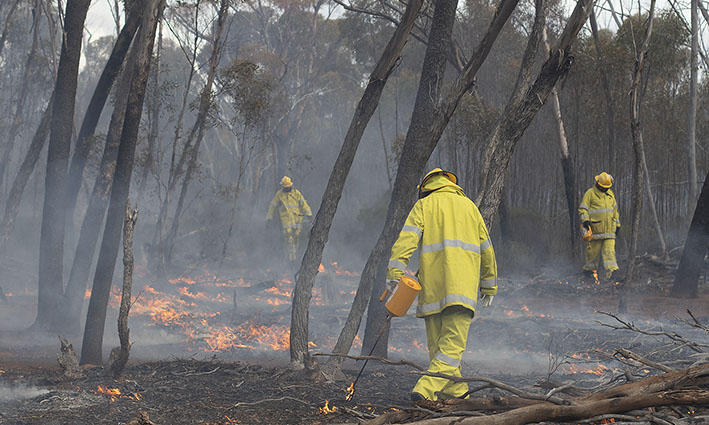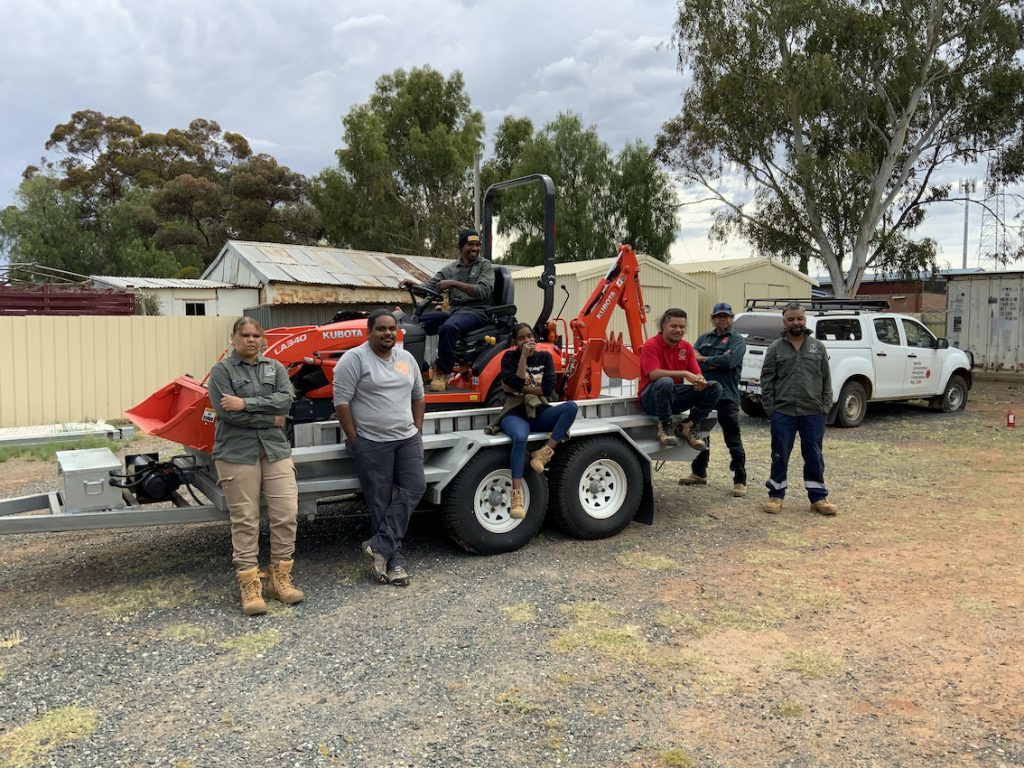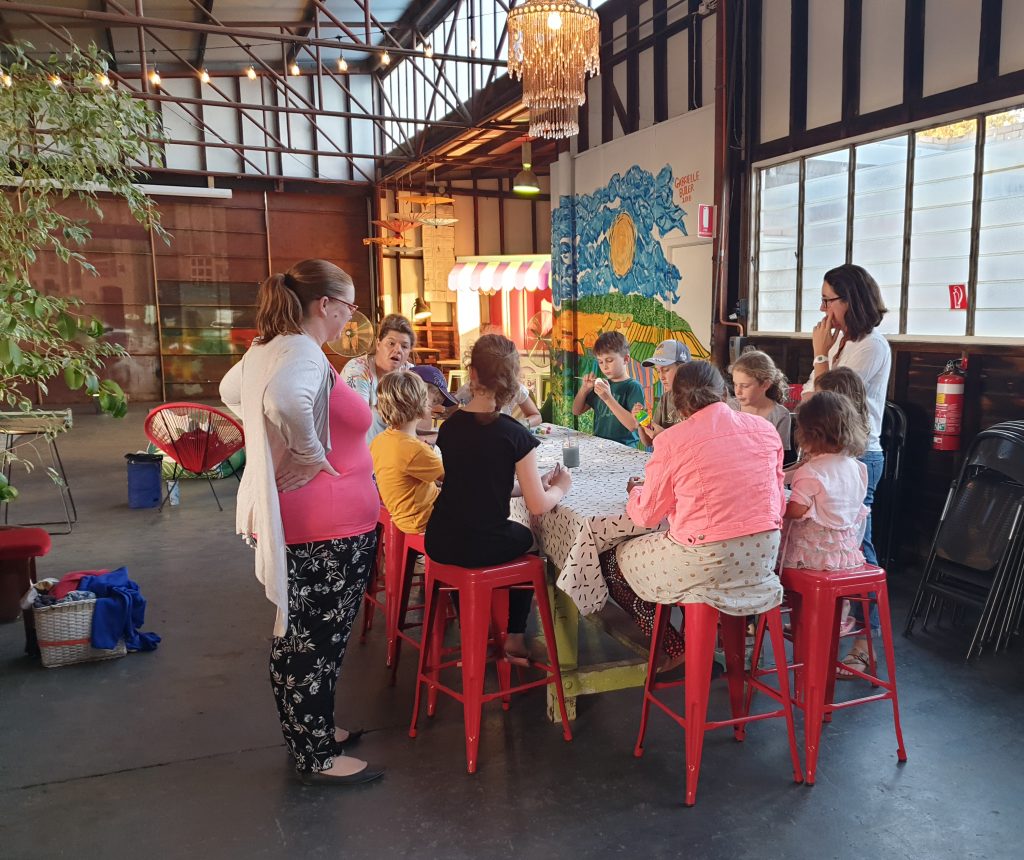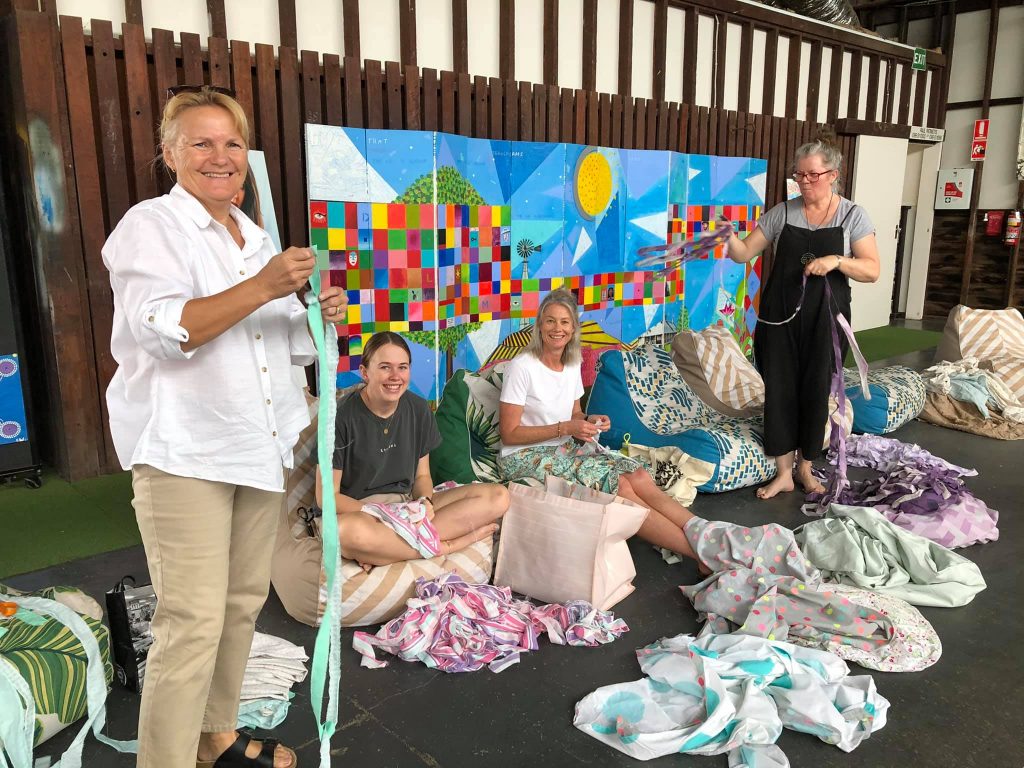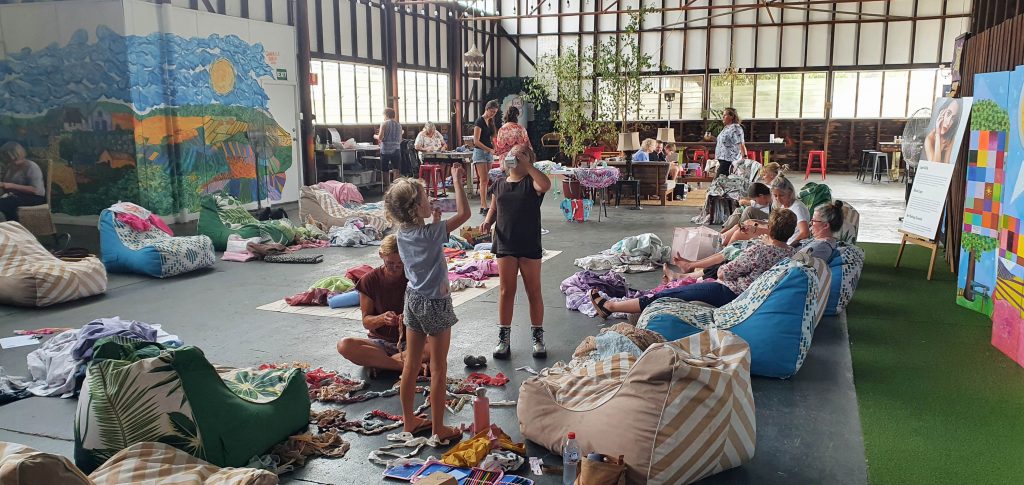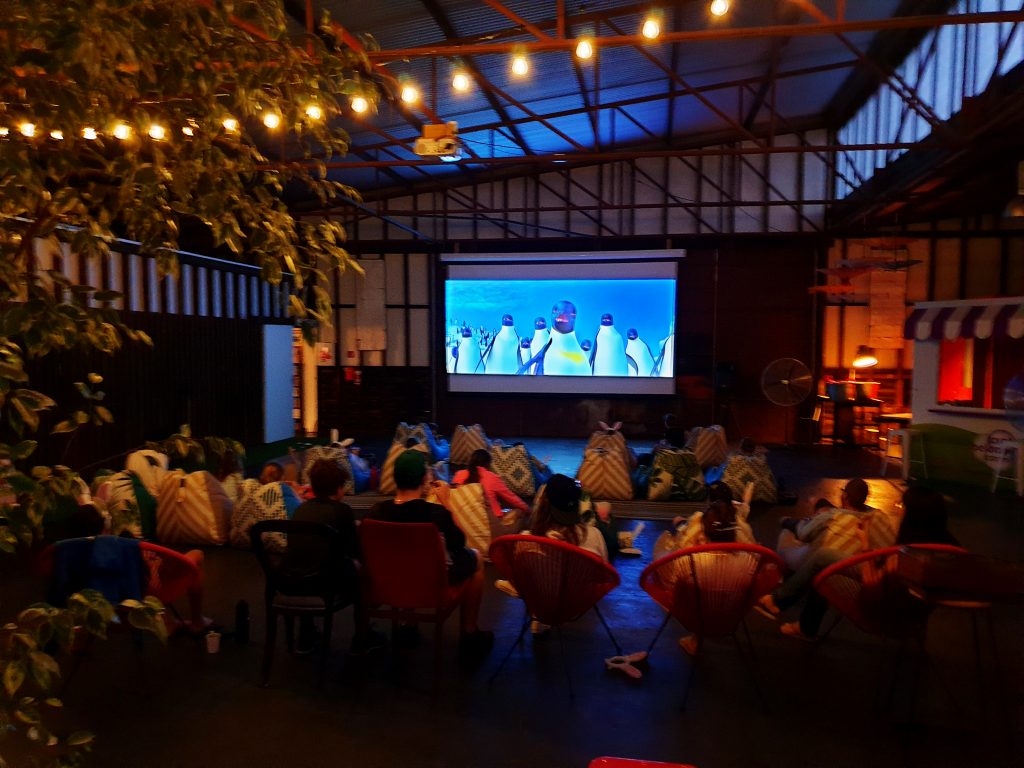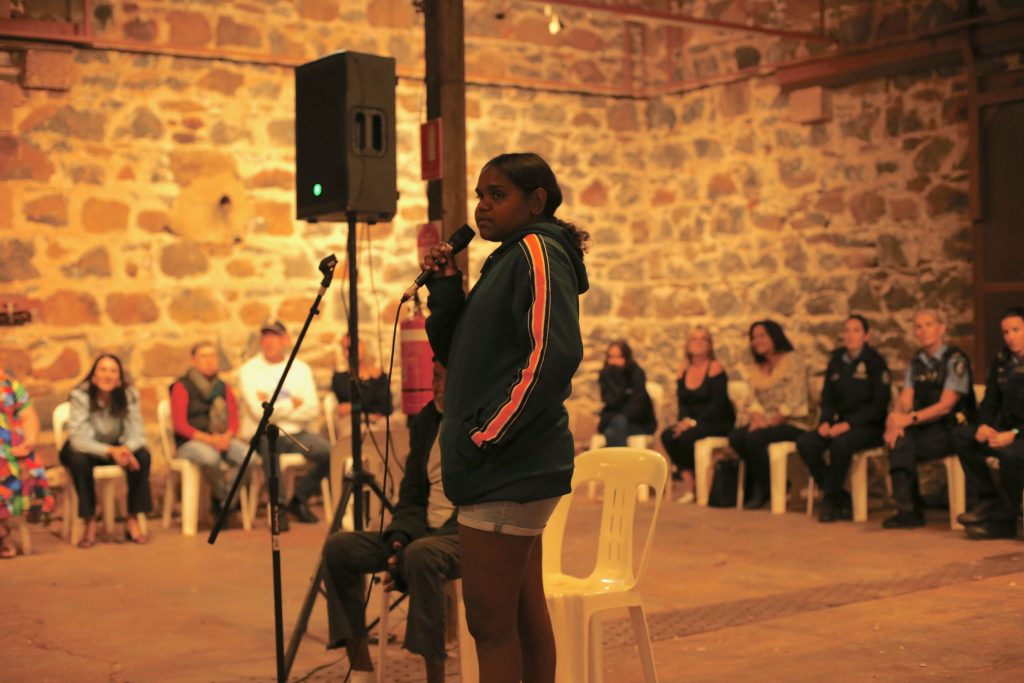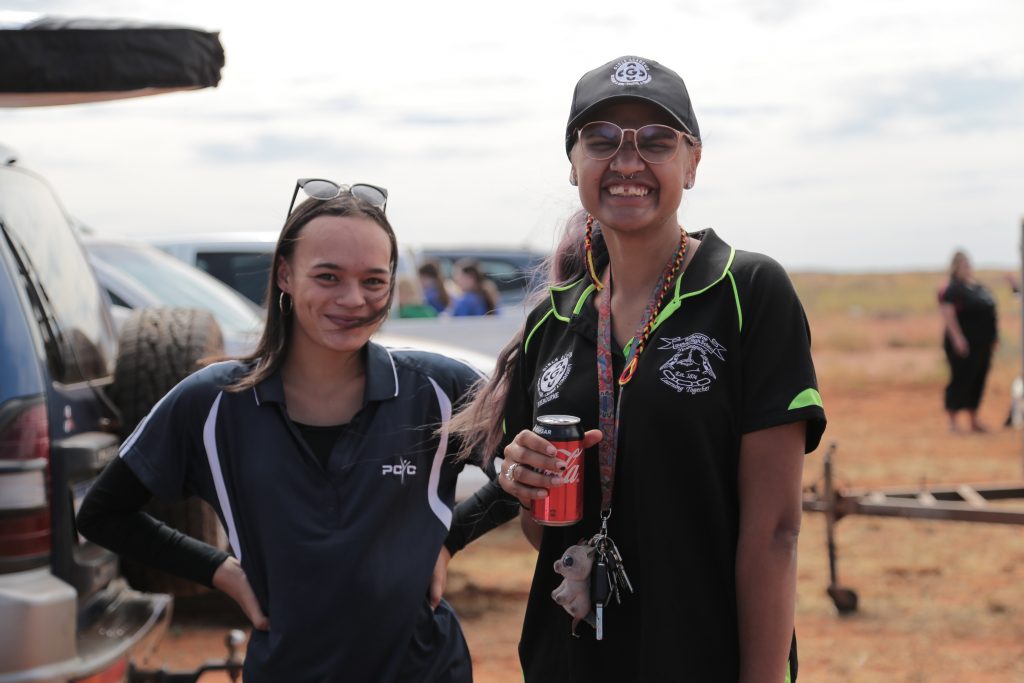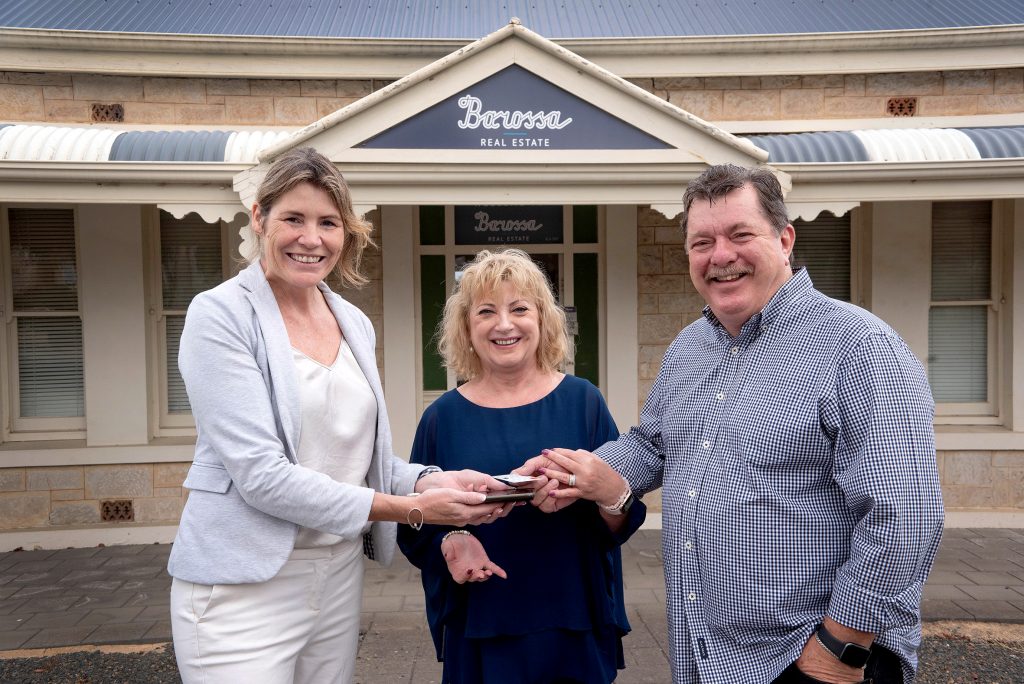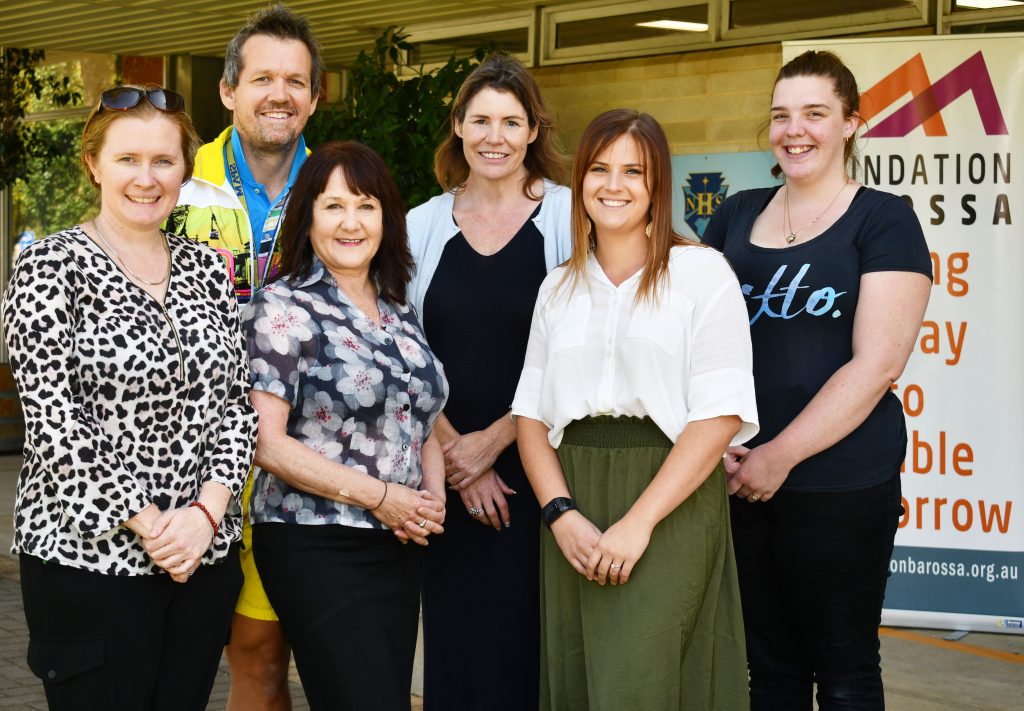Foundation for Rural & Regional Renewal (FRRR)
Plus workshops scheduled re fundraising for NFPs and strengthening local connections
The Foundation for Rural & Regional Renewal today shared that a $1.3 million funding boost for the Shoalhaven region to further enhance the capacity of local not-for-profit organisations to support their communities has already started to roll out.
The funding is thanks to a partnership with the Australian Government, through the Black Summer Bushfire Recovery Program.
The additional investment means that even more of the ideas and initiatives identified through the Investing in Rural Community Futures (IRCF) program to continue the ongoing recovery following the Black Summer bushfires can be implemented across the Shoalhaven region. Thanks to support from The Snow Foundation and more recently Bendigo Bank through their Community Enterprise Foundation, FRRR has been working with communities in the Shoalhaven and South Coast area since 2020.
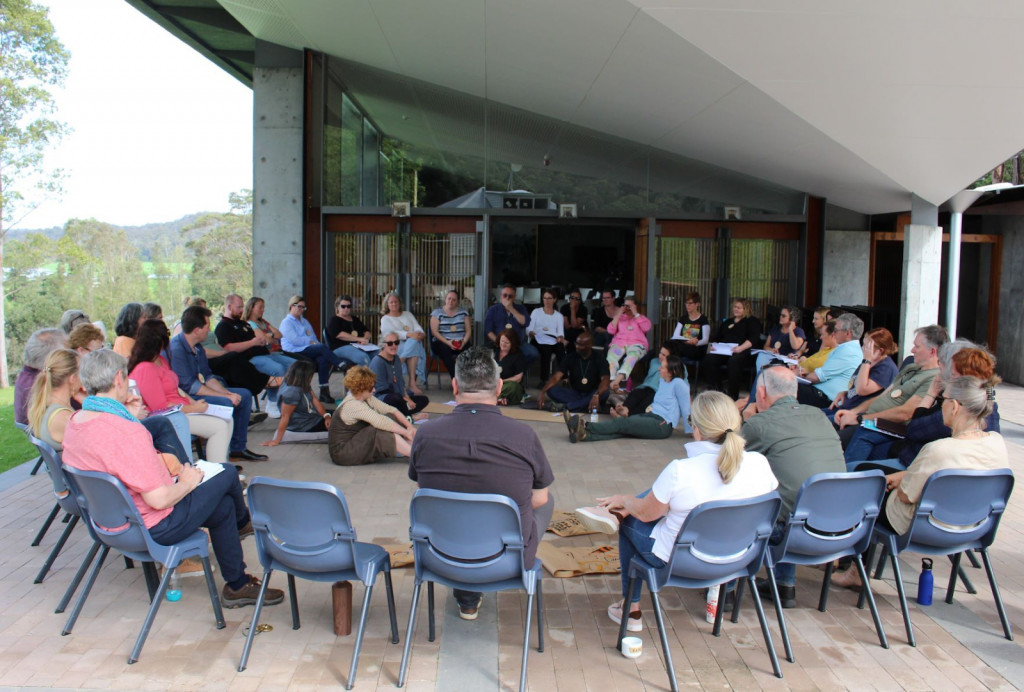
FRRR People Programs Portfolio Lead Deb Samuels says that this funding will benefit communities across the Shoalhaven region, all of which were impacted by the 2019/20 Black Summer Bushfires.
“This generous funding means that FRRR and our partners can continue to work with local community groups and not-for-profits to enhance their capacity to support their communities. We’ve already started by reviewing the roadmaps that were created previously and refreshing them in light of the bushfires and more recently flooding and the ongoing impacts of COVID.
“Practically, it means that FRRR can keep our facilitators on the ground in the Shoalhaven, so they can work directly with community groups to maintain the momentum that has built up over recent years through the IRCF program. They will continue to bring the community together and to implement the roadmaps identified for each of the participating communities.
“Perhaps most excitingly, it means that we have also been able to expand our support to Kangaroo Valley and Lake Conjola – again, two areas that were significantly affected by the fires.
“We recently funded 20 places at the Art of Hosting and Harvesting Conversations that matter in Bundanon. This three-day training session has equipped more local people with the skills to facilitate conversations that can lead to coordinated action and positive change. We will be further supporting local not-for-profit leaders the opportunity to attend Art of Hosting in the Southern Shoalhaven on 8–10 February 2023.
“Each of the initiatives that will be supported in future address issues or opportunities that local groups have already identified and prioritised. For example, in partnership with the Australian Rural Leadership Foundation, we’ll be delivering a tailored year-long leadership program to 24 participants from across the community, thereby strengthening the leadership base for the future.
“All of these initiatives are designed to help local community groups to better support their communities and so we are extremely grateful for this additional support through NEMA,” Ms Samuels explained.
The Art of Hosting workshop certainly made an impact on participants. In one of the closing sessions, in response to a question about what they are taking from the event, one person said “Excitement & hope we can continue to collaborate in the Shoalhaven to nourish our communities”, while another commented “Feelings of respect and admiration for all, different expressions of experience and life stories, strengthened by sharing in the collective”. This additional funding will hopefully mean more of these sorts of sessions.
Registrations are also currently open for two more workshops that respond to local priorities – namely around fundraising, and building and strengthening connections and networking across not-for-profit. Representatives from any not-for-profit or community group are welcome to attend, but registration is required:
Ulladulla Session – Wednesday 23 November, 9-12 pm, Ulladulla Civic Centre –
Register: https://www.stickytickets.com.au/z0ves/frrr_ircf_program_community_workshop.aspx
Nowra Session – Thursday 24 November, 9-12 pm, Nowra School of Arts –
Register: https://www.stickytickets.com.au/0gf26/frrr_ircf_program_community_workshop__nowra.aspx
To find out more about the IRCF program in your community or to get involved, visit ircf.frrr.org.au or contact FRRR on 1800 170 020.
Final round of funding announced
Applications are now open for The Yulgilbar Foundation Fund grant program, which is run by the Foundation for Rural & Regional Renewal (FRRR). Community groups and local not-for-profit organisations (NFPs) in and around Clarence Valley can apply for grants of up to $50,000 to fund projects that strengthen their capacity and resilience in response to the 2019/20 bushfires, flooding and continued challenges across the region.
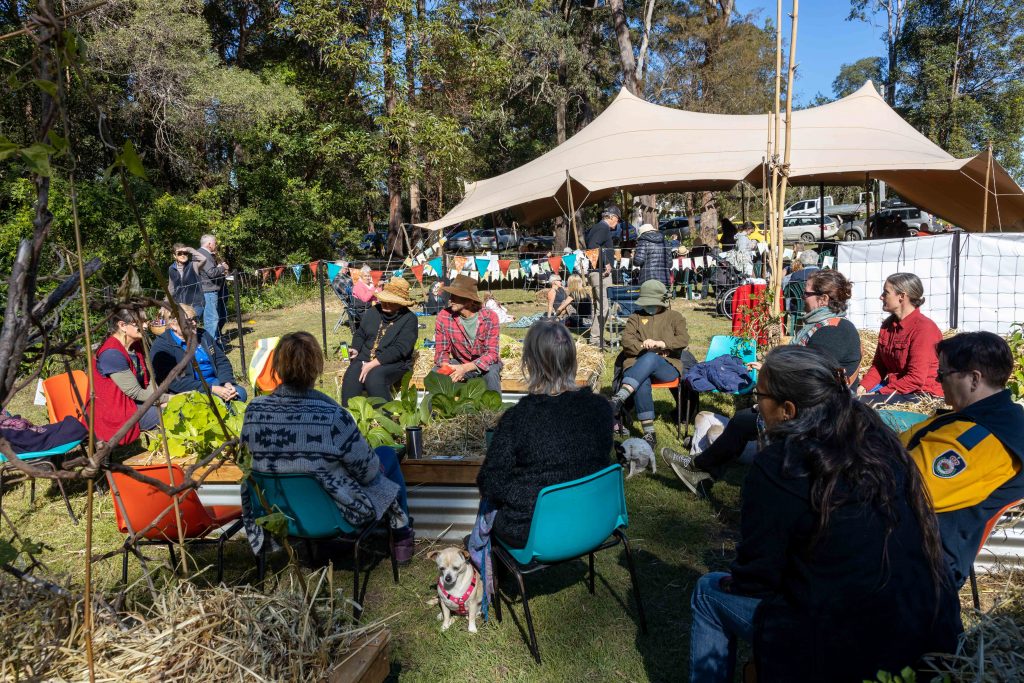
This is the final round of funding from this program, offering $2 million across the region through a mix of multi-year and one-off grants depending on the needs of local groups.
The Fund focuses on supporting projects that leverage artistic endeavours, boost educational participation, support locally-led environmental sustainability initiatives or build capacity for communities to respond to bushfires, drought, floods or other events like COVID.
Natalie Egleton, FRRR’s CEO, said that The Yulgilbar Foundation shares FRRR’s passion for community-led recovery and resilience.
“The people in this region have dealt with a lot the last few years between drought, then the 2019-20 bushfires, COVID restrictions and most recently, flooding. At FRRR, we know that local organisations are led by community members who are best placed to know and really understand what the community needs to recover and also to thrive into the future.
“The Yulgilbar Foundation takes the same approach, which is why this grant program was created in the first place. We have a strong history of partnering and it’s been great to work alongside them on this program strengthening the communities of the Clarence Valley and surrounding regions,” said Ms Egleton.
Community groups and NFPs can apply for the grants before 5pm AEDT, 21 February 2023.
More details, including the program guidelines and EOI form, are available on FRRR’s website – https://frrr.org.au/funding/the-yulgilbar-foundation-fund/.
Eleven not-for-profits (NFPs) in Junee, Leeton and Nambucca Valley will share in $444,063 in grants. The funding is thanks to FRRR, in partnership with Vincent Fairfax Family Foundation (VFFF), through the Investing in Rural Community Futures (IRCF) program.
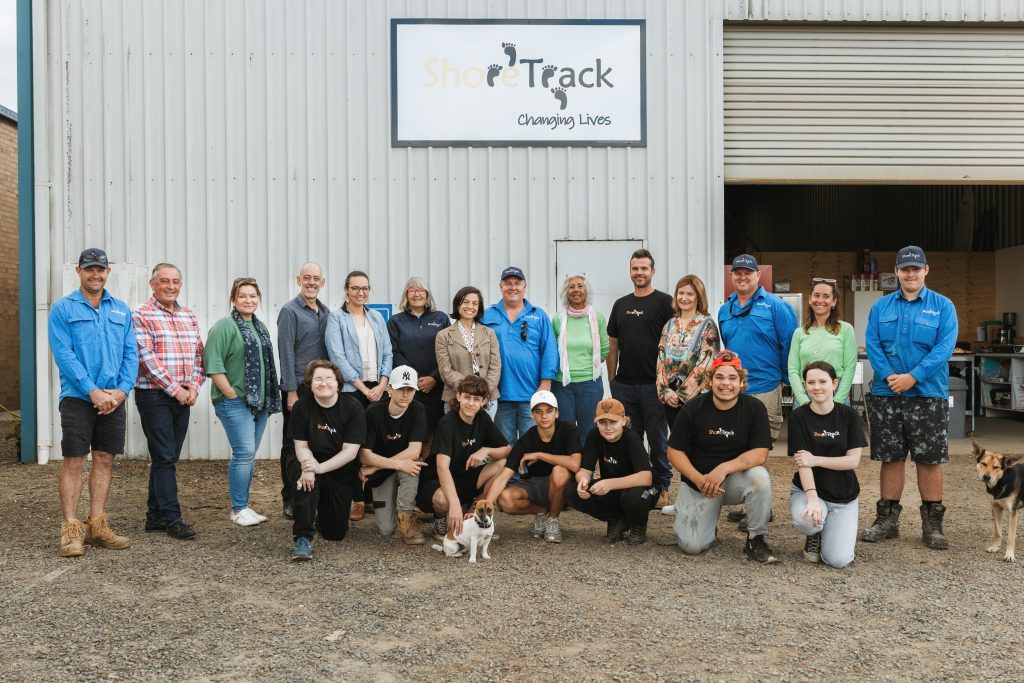
IRCF is a five-year program initially designed to support local NFPs in Junee, Leeton and Nambucca Valley. The goal is to support and build the capacity of locally-led organisations, so that they’re better equipped to deliver on their purpose and serve their communities.
As part of the program, FRRR works with community groups and leaders to create a roadmap that will help local organisations to work together towards achieving their goals and filling in the existing gaps within their communities. Program participants are offered a range of supports under the IRCF model, including access to a facilitator, grants, participatory planning processes, skill development, and external resources.
Natalie Egleton, FRRR CEO, said that the IRCF program in Junee, Leeton and Nambucca Valley is now in its fourth year and its success highlights how important it is to have place-based grant programs that focus on specific communities and their needs.
“This program is quite unique in the sense that it has operated over a number of years. This means that we get to go on a journey with these organisations, addressing issues they identify and working towards achieving the goals outlined in the road mapping process on what’s almost a step-by-step basis.
“At this stage of the program, the majority of the local NFPs being funded have previously received a grant through the program and are consolidating their efforts or building capacity to engage in more collaborative projects. The ongoing support and resources provided by this program give these communities consistency and the ability to plan for the long-term, both of which are crucial for creating sustainability and self-sufficiency in the future, once the program comes to a close,” Ms Egleton said.
“In this round, we clearly saw an emphasis on financial sustainability by the local organisations in these three communities. Program participants are working towards revenue diversification, improving financial systems and amplifying their value proposition, all of which are really important considerations for NFPs in remote, rural and regional Australia given the economic uncertainty we’re currently facing,” Ms Egleton said.
The full list of grant recipients and their projects are below:
| Organisation | Project | Location | Grant | |||
|---|---|---|---|---|---|---|
| JUNEE PARTNERSHIP GRANTS | ||||||
| Junee Community Centre Inc | Financial Sustainability and Responding to Community Needs Improve sustainability through focused activity to strengthen financial systems, enable land acquisition and scoping towards the development of a Community Hub. | Junee | $33,648 | |||
| Junee Business & Trades Incorporated | Revitalisation Strategy Revitalising Junee Business and Trades Inc through the development of strategic and marketing plans and improved financial management. | Junee | $27,894 | |||
| Cooinda Court Aged Care Ltd | Independent Living Study Boosting financial sustainability and organisational efficiencies through a feasibility study to explore revenue diversification and the consolidation of client information systems including the enhancement of a compatible finance program. | Junee | $19,286 | |||
| Junee Show Society Incorporated | Strategic Planning for Junee Showgrounds Creating a Strategic Plan for the Junee Showgrounds in collaboration with User Groups, to enhance coordination and the venue to be compatible with modern needs. | Junee | $23,491 | |||
| LEETON PARTNERSHIP GRANTS | ||||||
| Leeton Jumpstart | The Transformation of Leeton JumpStart Fund Operationalizing strategy, diversifying revenue, and upskilling volunteers to future proof the Leeton Jumpstart Fund. | Leeton | $38,980 | |||
| Leeton Connect Inc | Grants Support Coordinator and Collaboration Consultant Consolidating strategic objectives and symmetries across the Leeton NFP sector to inform grants support coordination and future partnerships. | Leeton | $56,570 | |||
| Leeton Business Chamber Incorporated | Building Capacity of the Volunteer Base to Ensure Sustainability and Business Continuity Strengthening Leeton Business Chamber through supported coordination of the new Leeton digital hub, volunteer training, governance enhancements and maintaining partnerships. | Leeton | $60,000 | |||
| NAMBUCCA VALLEY PARTNERSHIP GRANTS | ||||||
| Shoretrack Ltd | YP Connect Tech Building connections and understanding between ShoreTrack young people and the NFP sector through collaborative multi-media workshops and work experience opportunities. | Macksville | $45,000 | |||
| Miimi Aboriginal Corporation | The Leadership Growth Project Revitalising Miimi Aboriginal Corporation through additional human resourcing to support wellbeing, cultural leadership, social enterprise development and operationalizing a new strategic plan. | Bowraville | $50,000 | |||
| Mujaay Ganma Foundation Aboriginal Corporation | Mujaay Ganma Nyanggana Embedding succession planning and financial sustainability through building cultural knowledge and skills in youth trainees. | Bowraville | $45,764 | |||
| Bowraville Communication Technology Centre Incorporated | Community Printing Services and Volunteer Support Training Rejuvenating volunteer efforts and service delivery through equipment upgrades and First Aid training. | Bowraville | $12,430 | |||
FRRR, a one-of-a-kind Australian charity, has granted a record amount of $19.8 million to remote, rural and regional Australia during a year when rural communities have dealt with the ongoing impacts of COVID, the legacy of bushfires and drought and some of the worst flood events on record.
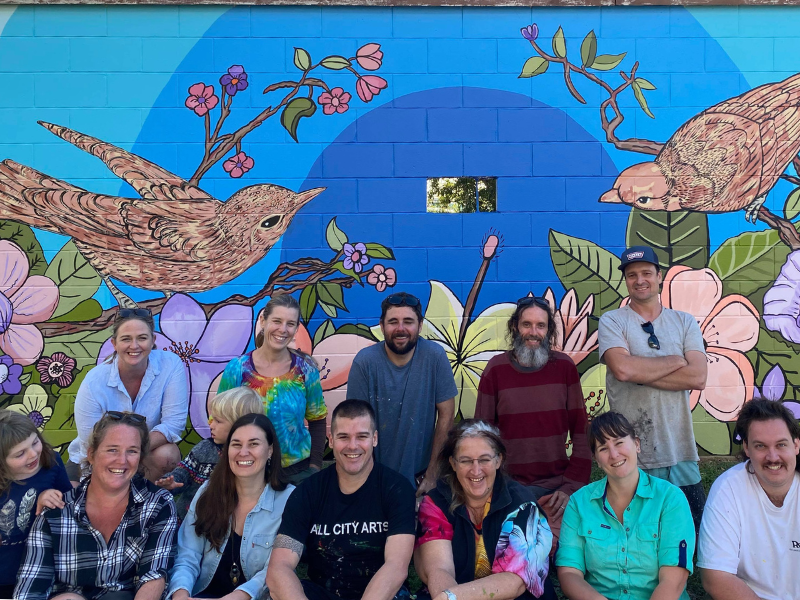
Having operated for 22 years, FRRR is the only national foundation specifically focused on ensuring social and economic strength in rural Australia. Their aim is to ensure that community groups and local not-for-profit organisations in these areas have the resources and tools they need to create sustainable, vibrant remote, rural and regional communities.
As reported in their recently released 2021/22 annual review, last financial year, FRRR awarded 991 grants to projects in 526 unique locations across Australia. Of the total $19.8 million granted, more than $12.3 million went to communities that were either recovering from or preparing for natural disasters like flooding, cyclones, drought and bushfires.
Another notable statistic is that for every $1 donated by FRRR, an additional $1.54 was generated in-kind or in cash, meaning that the total value of projects supported was more than $50 million.
FRRR CEO Natalie Egleton said that it was inspiring to be able to support so many community groups serving their communities during such a tough year.
“The last financial year brought a lot of disruption and hardship for remote, rural and regional communities across the country. From pandemic restrictions and floods to cyclones and the devastating fallout from bushfires, each community grappled with its own unique set of challenges, yet we saw common themes in each and every community we worked alongside during the last year. Generosity, agility and strength.
“To see locals and community leaders rallying together and continually stepping up to the plate to serve their communities truly is inspiring – particularly after the last couple of years,” said Ms Egleton.
Ms Egleton also spoke about the generous support of FRRR’s donor partners and supporters who helped to make their work possible this year.
“At FRRR, we work with an incredible network of organisations and philanthropic leaders who share our vision for a more vibrant, resilient and revitalised remote, rural and regional Australia and we are honoured that these organisations and philanthropic leaders continue to put their trust in FRRR. The past 12 months have been difficult for businesses and organisations of all shapes and sizes, yet the way our corporate and philanthropic partners continue to show up and show their support for rural Australia speaks volumes about the spirit of generosity and charity that’s embedded in our culture.
“This year saw the introduction of some new partnerships as well as the renewal of some long-standing partnerships. In particular, this year marked the 20-year anniversary of our partnerships with ANZ and Gardiner Dairy Foundation, both of which were major milestones,” Ms Egleton concluded.
You will find FRRR’s FY2020/21 Annual Review at www.frrr.org.au/AR22
Huon Valley council acknowledges Traditional Custodians of the South East Nation, the Melukerdee people of the Huon River and the Lyluequonny people of the Far South.
Following a number of suicides in the Huon Valley in southwest Tasmania, the community indicated an interest in learning more about mental health and how to best support a family member, friend or colleague who may be struggling with their mental health.

With the help of a $9,255 grant through the In a Good Place program, supported by CCI Giving, the Mental Health Community Response project was initiated. Its goal was to build capacity in the Huon Valley to respond to and prevent suicide and promote mental health through the delivery of mental health first aid training to community members and groups. By providing the tools, community members could better understand and support members of the local community who may be self-harming or suicidal.
The Huon Valley Council took on a project coordination role, working closely with the Rural Alive and Well program, to reduce the stigma of suicide by promoting events widely across the community, encouraging conversations about mental health. They also ran three 12-hour Mental Health First Aid programs across some of the smaller communities in the Huon Valley, as well as delivering two self-injury focused workshops to community members struggling to support family members who self-harm.
The Huon Valley Council’s contribution was significant, as participants appreciated being able to complete the training at an affordable cost and within their own local community. COVID posed several challenges, with the delivery of training delayed, as it was agreed that face-to-face sessions were important, given the nature of the training.
Communities and individuals in the Huon Valley are now better equipped to support each other, their community, family members and colleagues dealing with serious mental health issues such as self-harm or suicidal ideation. Community networks were built and reinforced by the project. At the completion of the project, participants had the confidence and resilience to share stories and have conversations in a secure and inclusive environment, to further reduce barriers associated with discussing mental health and suicide.
For more inspiring stories like this, head to our FY 2021/22 Annual Review.
On Ngadju Country
Late 2019 / early 2020 saw 13 bushfires devastate approximately one million hectares of Ngadju country in southern WA, including large tracts of the Great Western Woodlands, the largest temperate woodland remaining on Earth. It is estimated that the extent of the area of Ngadju country impacted by the fires was equivalent to about half the size of Victoria. The bushfires burnt tracts of old growth forest, overran spiritual sites and destroyed the habitat and nests of threatened species.
Ngadju Conservation Aboriginal Corporation (NCAC) works with the Ngadju community to increase the understanding of conservation and land management opportunities and assist in building capacity to achieve them. Ngadju Rangers use cultural knowledge, refined over thousands of years, to care for the environment and work on Country to manage fire, feral animals and weeds, and to protect mijalkarru (rockholes), the Granites, water places and the flora and fauna of the Great Western Woodlands and the Nullarbor plains.
Following the fires, NCAC received a $25,000 Strengthening Rural Communities grant funded by IKEA Australia through FRRR to help the Ngadju Rangers to both repair the damage and undertake work to protect the environment and cultural sites from the devasting impact of the bushfires. Their approach involves a detailed program of cultural burning to protect sites, old growth and water trees. The mosaic effect of landscape-scale burning benefits biodiversity by reducing the extent and severity of large-scale fire and creates a range of vegetation growth stages and habitats that suit different species. Prior to a burn, Ngadju Rangers and Elders walk through the planned burn site to survey for cultural and environmental values. However, access to the tracks leading to these sites were heavily impacted by the recent fires and also from years of neglect.
NCAC used the grant to commission a specially fabricated trailer with hydraulic tipping for use with their tractor to help the Rangers clear the tracks, enabling safe access to undertake their important cultural and environmental work. This improved access will also allow other Ngadju community members to attend sites and undertake voluntary maintenance and management, which will help them reconnect with Country and transfer knowledge across generations.
Helen Langley, NCAC’s CEO, said that the project wasn’t without its challenges.
“The challenge was the amount of time it took for the trailer to be fabricated and then wired. It took eight months for the trailer to be built and we have only recently received delivery. We are developing Safe Operating Procedures and have organised training for the Rangers so that we can commence clearing tracks and making fire breaks around areas of mosaic burns.
“We are proud that the Ngadju Rangers can now access their Country for cultural burning and they can use machinery to make fire breaks. The project has assisted in rebuilding the Ngadju community and provided healing for community who are mourning the loss of Country.”
For more inspiring stories like this, head to our FY 2021/22 Annual Review.
On Yued, Amangu, Badymia and Widi Country
Carnamah is a town and farming community 300 km north of Perth in WA. Located on Carnamah’s main street, The Exchange is a repurposed heritage building that has been transformed into a multipurpose community and visitor centre. Run by North Midlands Project Inc, it is a not-for-profit arts, culture, history and heritage organisation working towards happy, healthy communities and vibrant, connected towns. They deliver activities across the North Midlands – the seven regional local government areas of Carnamah, Coorow, Mingenew, Morawa, Perenjori and Three Springs.
The Exchange is used on a weekly basis as the home of a local painting group, writing group, youth coding club and the regional Five Gums Scout Group. The space is also utilised for the delivery of many other community workshops and events facilitated by North Midlands Project – all of which are provided to the community free of charge to ensure they are accessible.
North Midlands Project received broad community feedback that people loved The Exchange, especially its welcoming vibe, but that it got too hot in the back section of the building during the warmer months. On occasion, Carnamah is the hottest place in WA, with summer temperatures averaging 36 degrees. This heat renders the space unusable for the best part of four months in the year.
The management committee received a $10,000 Strengthening Rural Communities grant, funded by Australia Post, to contribute to the cost of installing two large air conditioning units in the back section of The Exchange. This has transformed the space into one that is now utilised by the community for workshops, events and other activities right throughout the year.
David Bright, Executive Director of North Midlands Project, said that they are very happy with the outcome.
“Our many, many thanks to FRRR and Australia Post. The grant is enormously appreciated and will have an ongoing impact to our broader community.”
For more inspiring stories like this, head to our FY 2021/22 Annual Review.
On Ngarluma Country
Roebourne is a town in the Pilbara region of WA with a largely Aboriginal population. Police have observed a real gap in meaningful engagement with the youth of this community and a lack of opportunities to build their skills, confidence and positive decision making.
Big hART is an organisation that uses art as a catalyst for change. Over the years, Big hART has demonstrated its ability to engage and work strongly with young people and across different levels of community, with strong outcomes as a result. Their grassroots style of engagement, working directly with young people, has a huge impact on the social and community issues that face Roebourne as an Aboriginal community. The outcomes of the many programs, workshops and high production value events that have been created in partnership with Big hART have been profoundly life changing for many young people in the community.
Young people in the Pilbara have created a future focused, ground breaking digital education resource that celebrates living culture and supports teachers with an energetic mode of online learning. In 2020, Big hART received a $10,000 grant from the Westpac Foundation Community Grants program to train and create paid employment for four young adults in the Pilbara to deliver this Indigenous education resource live to classrooms nationally.
Known as the NEO-Learning project, Big hART created tailored training and professional development opportunities for the four trainees, who were individually mentored with a view to longer term employment, to deliver the NEO-Learning resource to schools nationally. The traineeships offered tangible career paths giving them strong digital skillsets and practical industry experience that included digital drawing and music delivery skill building, virtual education delivery, media and communications, and presenting and public speaking. These activities and tasks were mentored by professional producers and creative industry practitioners, through a task focused workshop program.
The outcomes from the project exceeded expectations, with incredible results for some of the trainees, one of whom was Simara, a young Aboriginal woman from Roebourne. She was part of the digital training program, and said that during the program, she grew in confidence and felt excited for her future and career path.
Sam Hawker is the National Producer for Big hART. She said that while creating peer to peer educational content, Simara displayed an excellent eye for framing and observation.
“We have been able to foster her passion for photography over the last 12 months, providing opportunity for Simara to build technical skills and refine her creative practice. To amplify her achievements, we delivered professional development workshops, leading to her art being selected at the prestigious Revealed Exhibition hosted by Fremantle Arts Centre in Perth. Big hART supported Simara throughout this process, from initial conversations with Fremantle Arts Centre to the development of an artist statement, workshops on licensing, contracts and payments. Over the course of the Exhibition, all of Simara’s artworks sold, including one being purchased by the WA State Government for display in Dumas House in Perth.
“As Simara’s confidence in photography continues to grow, she has become a very important role model and mentor for her peers and community.”
Simara also completed media training under the mentorship of Big hART’s Media Manager and implemented this training in conducting interviews with her community. Big hART also helped Simara to obtain her Driver’s License, an essential qualification for employment in the region.
“Being employed as a trainee with Big hART was a great experience for me, as I gained a lot from supporting children and being a mentor and leader for them… this work helped me learn my identity and aspirations. It has made me look for other challenges and opportunities in my life,” Simara said.
For more inspiring stories like this, head to our FY 2021/22 Annual Review.
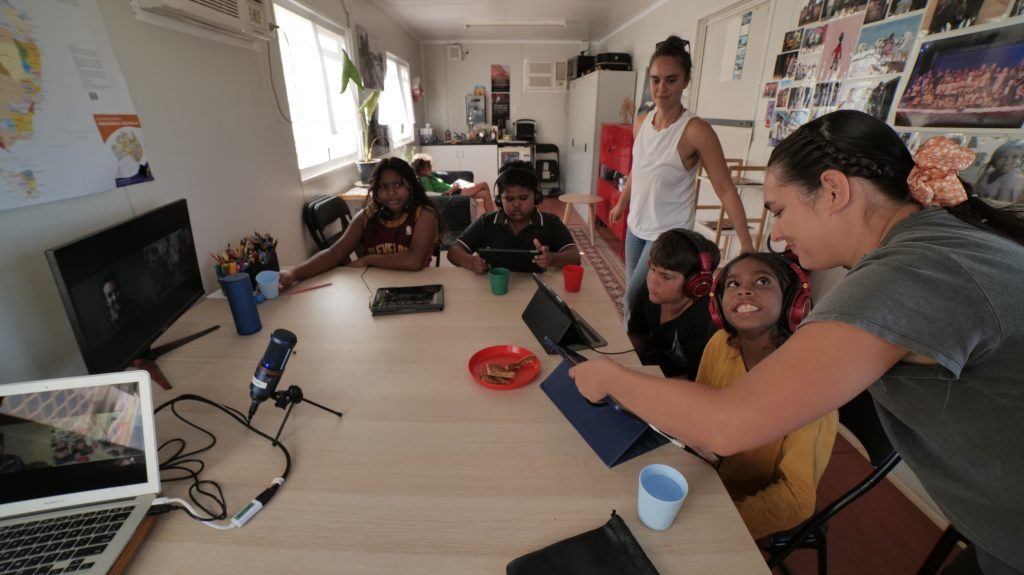
On Ngaiawang Country
The Morgan Volunteer Support Group is a not-for-profit organisation that delivers Meals on Wheels Monday to Friday including public holidays, for the Morgan, Cadell and Mount Mary areas in SA’s Riverland region. The Meals on Wheels service, which has run for more than 35 years, is invaluable for those requiring assistance to remain in their homes for as long as possible, as well as those who have problems such as a broken limb, drug rehab or failing eyesight, which diminish their ability to shop and cook. Additionally, Meals on Wheels delivery offers important social contact for people who use the service and may otherwise be socially isolated. This is of particular concern for those living in regional areas.
The Support Group has partnered with the local prison training program to cook the meals. This not only helps them gain skills for a future trade, but participants also gain satisfaction from helping the community.
In the past, the Morgan Meals on Wheels service used a car owned by Meals on Wheels SA. However, they wanted to sell the vehicle and instead have volunteers use their own cars. After some discussion, Meals on Wheels SA agreed to retain the vehicle for a further three years, to give the Morgan volunteers time to raise funds to acquire a vehicle of their own. Otherwise, the service would most likely cease.
This was also an opportunity to purchase a newer, more reliable, efficient and safe vehicle, as the car they were using was more than 10 years old. The Morgan Volunteer Support Group undertook a lot of local fundraising and secured a $10,000 grant through FRRR’s SRC program, thanks to the support of the Kellogg Australia Charitable Foundation. With COVID causing supply-chain issues, demand for second-hand vehicles was high but after much searching, they purchased a second-hand Toyota Camry Ateva. It met most other requirements – most importantly room for hot boxes, baskets and eskies.
In addition to using it for Meals on Wheels delivery, the group is also seeking to expand their delivery services. They also have plans to make the vehicle available at other times to offer transport solutions to the community, raising additional funds for the Support Group, at the same time as offering a valuable service for those who can’t drive or don’t own a car.
The group is rightly proud of what they achieved, on time and on budget.
“We had help from many different groups – Waikerie Men’s Shed, Waikerie Woolworths, Morgan Friendly Grocer, Morgan Roadhouse, Morgan Home Hardware, Morgan Commercial Hotel, Morgan Cadell Golf Club and hundreds of individuals.
“The car has been operational since March 2022 and is working well. We have been delivering meals for Meals on Wheels and for Morgan Activity Centre. Current customers can be assured of an ongoing service,” said Jakob Gamertsfelder, Secretary / Treasurer of the Morgan Volunteer Support Group.
For more inspiring stories like this, head to our FY 2021/22 Annual Review.
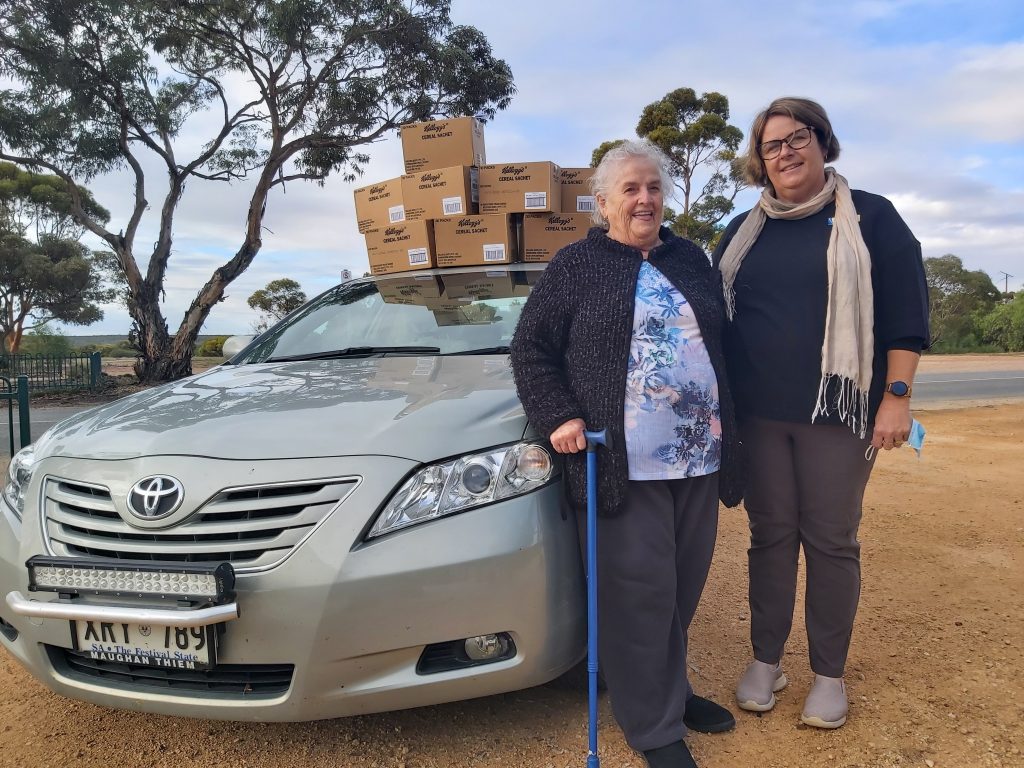
On Ngadjuri, Peramangk and Kaurna Country
The Barossa Valley in South Australia is a renowned wine-producing region northeast of Adelaide. When the COVID pandemic hit, tourism and wine exports significantly decreased, which placed a big financial stress on families in the Barossa. With the added pressure of drought, the region was seeing distressing numbers of mental health incidents and homelessness impacting the community.
Not-for-profit organisation Foundation Barossa has been working hard in the region since 2002 to encourage and support philanthropy to build and nurture their own community’s strength and assets. In recent years, Foundation Barossa has worked closely with several schools in the area where extra support is needed.
Foundation Barossa has been a big supporter of FRRR’s Back to School (BTS) program for a long time, and liaise with school principals and school welfare teachers to ensure that families in need receive the extra support they require.
Five hundred and fifty vouchers worth $50 were distributed to 13 schools, both primary and secondary, for the 2022 school year, thanks to the Fire Fight Australia Fund and a private donor who support FRRR’s BTS program. Students could use these vouchers to purchase school supplies like uniforms, stationery, lunchboxes and anything else that would make their education experience easier and relieve some of the financial pressure from families.
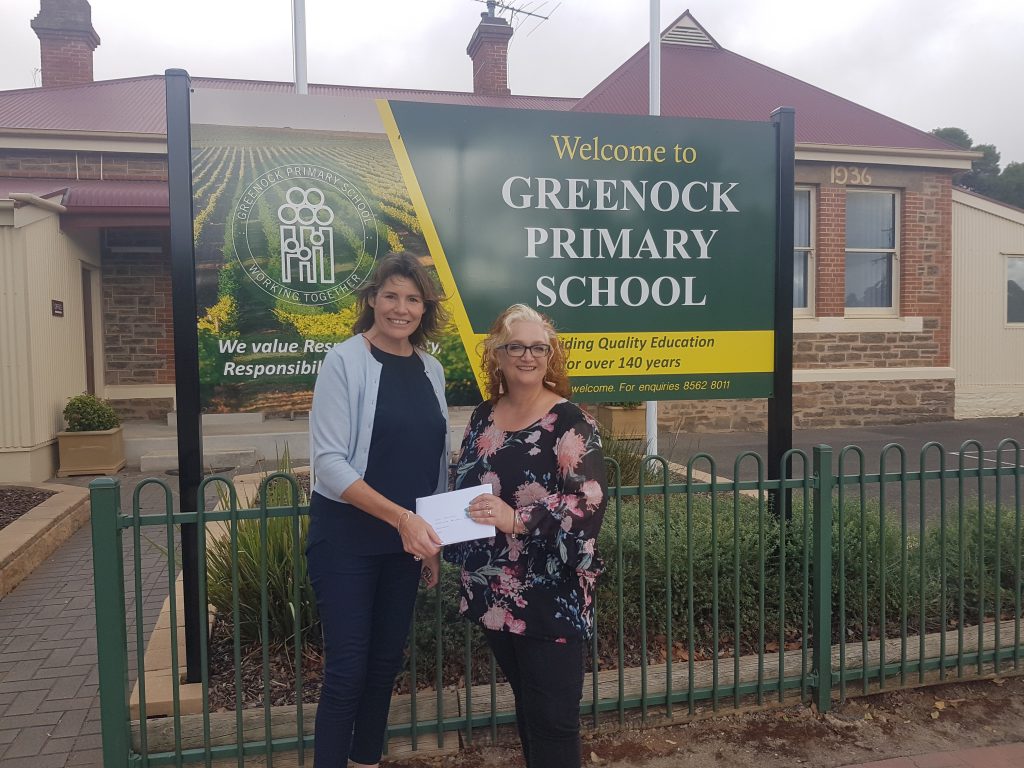
Together with matched funding provided by the Origin Energy Foundation through FRRR and local sponsorship from Barossa Real Estate, a further 203 vouchers were distributed, bringing the total to 753; the Foundation’s highest number to date. The success of the voucher rollout has been measured through an increase in student attendance and retention, and in general an improvement in student wellbeing. The Foundation has also noted a big benefit to the teachers at these schools who would sometimes become distressed or concerned for their students.
Here are some of the happy testimonials:
- “I would like to say thank you very much for choosing our family to receive the vouchers from Foundation Barossa. I lost my job back in October and am a sole parent. My pride was allowed no place when my boys handed them to me. Having only found a part-time job in the last week means the vouchers were very much appreciated and unexpected.” – Parent, Nuriootpa High School & Flexible Learning Centre
- “Teachers were very grateful and expressed they felt better going into the school holidays knowing that students had access to vouchers.” – Nuriootpa Primary School
- “Thank you so much for the Kmart voucher. My daughter purchased a new pencil case and pencils for schools. She thought Christmas had come early!” – Parent, Tanunda Primary School
- “We had a family arrive at our school at the beginning of term 2 who were homeless and living in a caravan with family members. On the first day when we met the mum, we gave her a voucher for each student to help get them some school supplies. She was so thankful that she was brought to tears, as she said they needed new school bags and she would now be able to get those.” Kapunda Primary School
For more inspiring stories like this, head to our FY 2021/22 Annual Review.

